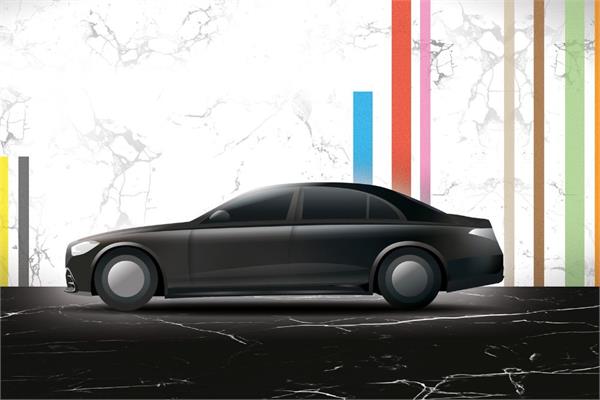
BASF unveiled its 2023 Color Report for Automotive OEM Coatings, highlighting changes in achromatic colors but not in chromatic hues.
The multinational company BASF has recently released its 2023 BASF Color Report for Automotive OEM Coatings - stating the traditional automotive color wheel has been going through a transformation.
The achromatic colours are experiencing a significant shift. White holds its position as the most popular color for light passenger vehicles, but it has seen a notable decrease in market share. On the contrary, black has gained more popularity, obtaining market share at the expense of white.
The consumer preferences vary across different regions:
- North America
is registering a preference for lighter shades of silver over darker greys;
- In EMEA, the trend leans towards darker shades, adding an intriguing dimension to the evolving color landscape.
The chromatic colors remain stable, with no significant changes in their total market share. This category includes colors like blue, red, brown and beige, as they keep their popularity among customers.
In the EMEA region, achromatic shades reign. In fact, white, black, grey and silver gained two percentage points in Europe, the Middle East and Africa. Car buyers have moved from lighter colors of white and silver to darker shades of black and grey. Premium category cars show more dramatic pigmentation than the entry-level and mid-price classes. More in detail, Germany loves blue, Spain and the United Kingdom prefer red or orange, France likes green and Italy shows its love for all colors.
“Although achromatic colors are still the most popular, each country seems to have its favourite place in the chromatic realm. A different color distribution could be observed in each of the main EMEA countries and in general. Our customers, the automakers, have now left a lot of room for individuality and creativity in car dealerships and car buyers are taking advantage of this,” has stated Mark Gutjahr, global Head of Automotive color design at BASF.
In North America there are lighter achromatic colors and pigments with more effects, with white, black, silver and grey gaining two percentage points as in EMEA. Red cars recorded the highest share compared to other regions in 2023.
“We are experiencing the same change seen in other regions. The old standard color palette is no longer applicable. Lighter shades are becoming increasingly popular, taking market share away from grey. More and more choices have effect pigments to give them intensity and excitement,” has commented Elizabeth Hoffmann, color designer for North America.
Regarding the Asia-Pacific region, chromatic colors are increasing with more variations in effects, with an increase in popularity in natural colors, especially green. Additionally, the Asia-Pacific region is the most diverse in color due to the wide variation in body types. For example, in New Energy Vehicles (NEV), cool tones with more green and violet influences can be seen.
“As various new vehicles hit the roads, it is only natural that a more vibrant color palette would follow. With new automakers creating new vehicles in Asia, they are asking for something more than the usual color wheel. They want something bold and creative on their new designs, and young consumers appreciate those colors,” has declared Chiharu Matsuhara, Head of Automotive color design for Asia-Pacific.
Lastly, South America continues to be the region with the largest share of achromatic colors. A total of 86% of newly assembled vehicles feature white, black, silver or grey bodies. With this type of market, more and more car manufacturers are choosing effect pigments to bring out achromatic colors. As a matter of fact, more cars with effect pigments were delivered in all body sizes than in 2022.
“Colors are not just colors any more, they are experiences. Whether it is a pearl or metal flake or other pigment, the effects make the color leap from the vehicle into the eyes of the beholder. It gives a certain flair that is becoming more and more popular,” has concluded Marcos Fernandes, Director at BASF Coatings South America.